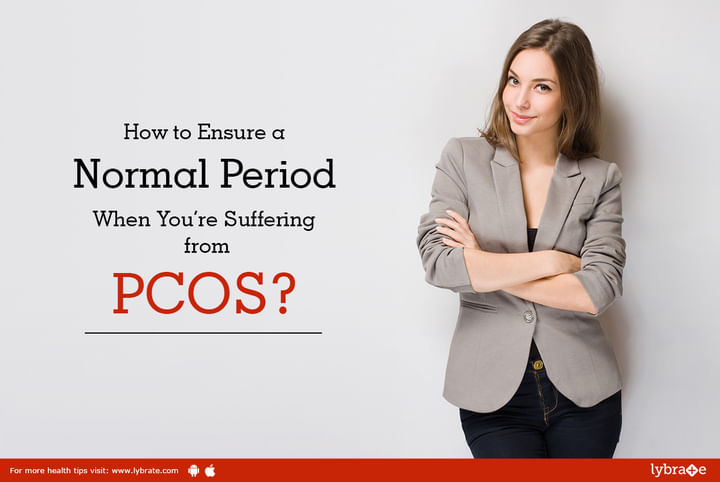How to Ensure a Normal Period When You're Suffering from PCOS?
How to ensure a normal period when you're suffering from PCOS?
Polycystic ovary syndrome (PCOS) is a hormonal disorder affecting 12-18% of women of reproductive age. PCOS is a condition where at least two of the following conditions occur:
1. Appearance of acne, excessive hair on your body
2. Irregular delayed periods
3. The presence of 10 to 12 small cysts in the ovaries.
You do not ovulate each month, and some women do not ovulate at all if they are suffering from PCOS. This is because although the ovaries of women, suffering from PCOS, usually have many follicles, they do not develop fully and so ovulation often does not occur. If you do not ovulate, you may not have periods.
So what can you do to have normal periods?
Although some women with PCOS have regular periods, high levels of androgen and also the hormone insulin, can disrupt the monthly cycle of ovulation and menstruation. If you have PCOS, your periods may be irregular or may stop altogether. The average menstrual cycle is 28 days with one ovulation, but anywhere between 21 and 35 days is considered normal, and for a woman suffering from PCOS, this cycle can take as much as 3 months to complete.
To ensure a normal period during PCOS, your doctor can prescribe hormonal contraception. The medication can also reduce menstrual cramps, acne, and excess hair growth. The estrogen and progesterone in hormonal contraception act to override the body's normal hormonal control of menstrual cycle and ovulation. Production of hormones such as testosterone is greatly reduced by the oral contraceptive pill. Some oral contraceptive pills not only aim to block the effects of testosterone but also increase insulin resistance.
By allowing the regular shedding of the uterus lining during menstruation, the pill can reduce the risk of developing endometrial cancer while ensuring you get normal periods.
Note: it is important that you closely watch your weight. Lifestyle changes and weight reduction help a lot when you are suffering from PCOS.
'consult'.
Related Tip: How Not to Miss Your Workout During Your PERIOD



+1.svg)
